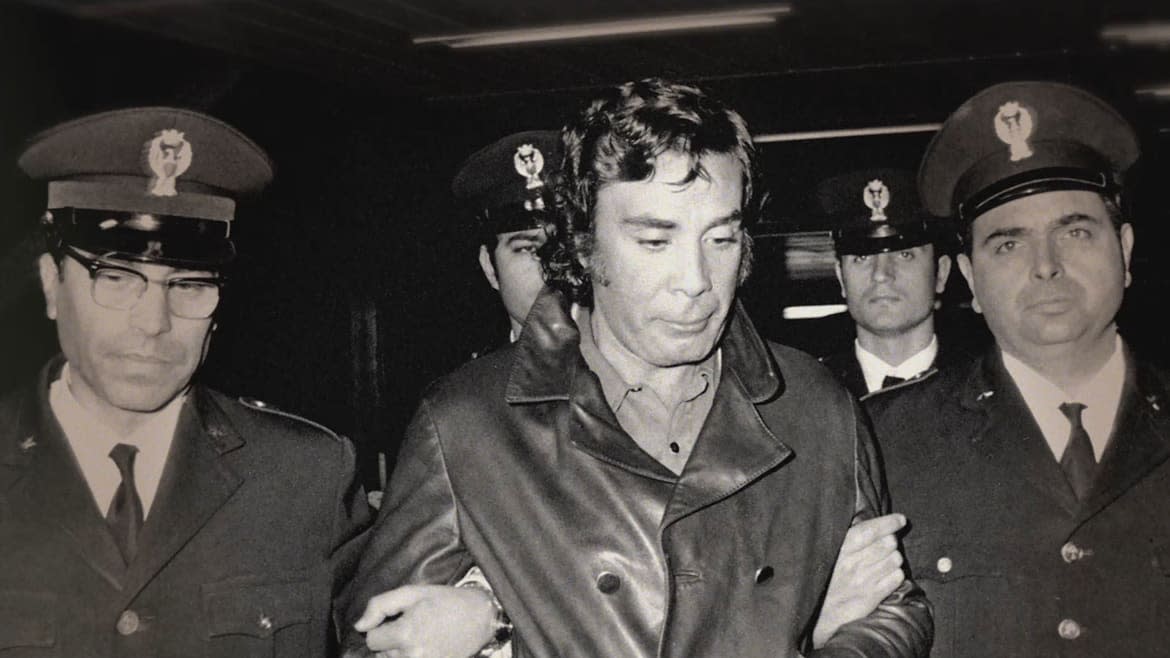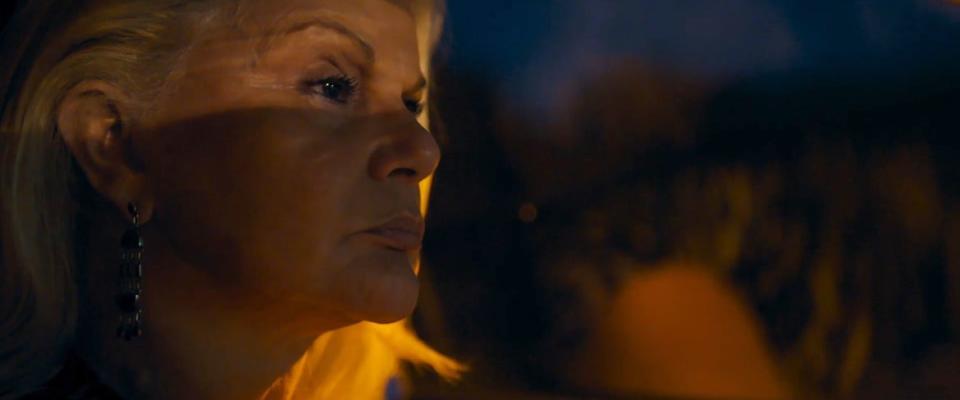Family of Most Dangerous Mafia Turncoat Ever Comes Out of Hiding: ‘Just a Call Would Kill Us All’

Some might think you would have to be naive or nuts—or a little bit of both—to come out of hiding to talk on camera about what it's like to be related to Tommaso Buscetta, one of the most dangerous Mafia turncoat canaries in the world. But that is exactly what Cristina, his third wife, and Lisa and Roberto, two of his children, have done, and it is with jarring intimacy that they share their story in Mark Franchetti and Andrew Meier’s new documentary Our Godfather.
The investigative journalist-directors spent years chasing down every lead they could find to unearth Buscetta’s family, which begs the question that if they could find them, why hasn’t the mob? The directors told The Daily Beast in a Skype interview from Moscow and New York that they didn’t think the mob would go to the lengths they did, and anyway, the mob surely wouldn’t have the help of the Drug Enforcement Administration or DEA, who helped them lay the trail.
It took nearly two years of dead ends before the directors had a bite, which took them to Florida by way of Brazil and Italy. They sent an email to a cryptic address they had heard Cristina used with bait in the form of something only Cristina would know from her years under witness protection. Cristina bit. “She wrote, ‘You’ve awoken my curiosity,’” Meier says, and then all they had to do was convince her it was safe to show her face on camera.
The 90-minute film, which just came out on iTunes and will be released on Netflix this fall, is a deep dive through the blood-stained underbelly of the Sicilian Cosa Nostra at its most potent moment in history. It is intermeshed with scenes that feel like being in the getaway car with Buscetta’s family, who are in many ways still trying to escape their personal godfather’s life of crime.
Netflix’s ‘The Disappearance of Madeleine McCann’ Backs Sex-Trafficking Ring Theory
Women of the Roman Mafia Are Turning Their Men In
While the documentary is fast-paced and entertaining, Buscetta is no Tony Soprano or Don Corleone, and the directors have no intention of glamorizing the mob. The story begins when Buscetta left Italy for Brazil, presumably to start the mob’s drug business there, where he met his third wife Cristina. By then he was Italy’s most-wanted man on the lam, and he was soon arrested and sent back to Sicily.
“We cannot gloss over any of the damage this guy did,” Franchetti told The Daily Beast. “It was paramount that we not make this guy a saint.”
It was then, in the mid-1980s, with the prospect of his entire life in prison and never seeing his beloved Cristina or their children again, that Buscetta decided to cooperate with an up-and-coming anti-Mafia prosecuting judge by the name of Giovanni Falcone—who would later be martyred by the mob with another anti-Mafia judge, Paolo Borsellino.
Eventually Buscetta’s confessions—3,000 pages long—bore the famous Mafia Maxi Trial and led investigators to New York, where he testified for none other than a young Rudolph Giuliani, then the U.S. Attorney for the Southern District of New York, whose cameos betray the image many have of the Trump surrogate today. Giuliani was key to getting Buscetta on the stand because he provided the only link between the powerful Sicilian Mafia and its emerging brethren in America. And since Italy had no witness protection program, Giuliani made sure Buscetta and his family were protected under America’s system.
The film includes interviews with some of the agents charged with protecting a man a lot of people wanted dead. They became like roommates, and, like a typical Italian, Buscetta would send his bodyguards out for fresh ingredients and then dazzle them with Sicilian recipes. One of the agents smiles as he admits that he still uses Buscetta’s recipe for pasta puttanesca today.
Our Godfather is a family movie of sorts, fed by Buscetta’s son Roberto’s own ‘90s camcorder home movies. He taunted his father with the camera in their hideouts and houses, and is in many ways the chief narrator of his father’s very strange life. He does not show his face on camera, but there is simply no need. He lives in fear. “The Mafia doesn’t ever forget,” Roberto says. “Somebody is going to know somebody who knows somebody and they’re going to come and get you.”
It is evident that Buscetta was a strong man with real blood on his hands, though, at times, especially when he is caught on his son’s home video, he seems almost flaccid, especially in his later years before he died of cancer in 2000 at the age of 72.
Buscetta’s life is a story of power, fame and reluctant remorse. Even when he turned on the mob in the mid-1980s, becoming the most killable turncoat in the history of the mob, he seemed conniving and arrogant, showing up in court in slick suits with an air of confidence that only comes with proven brutality.

Buscetta's wife Cristina in Our Godfather
Still, neither Roberto or Lisa hated their father for all he put them through. “I don’t care what anybody says,” a tearful Lisa tells the directors. “He was my dad.”
His testimony in Italy and the United States sent more than 400 gangsters to prison. As you might imagine, the mob was not exactly pleased. They found two of his sons living in Palermo and dismembered and dissolved them in acid as a warning even before he turned.
Buscetta was the youngest of 17 children who grew up in gritty post-war Palermo at a time when the Mafia provided an easy escape to the disenfranchised. He was the only person in his family to join the mob, and he did so with drive and determination, leaving a trail of corpses and drug convictions in his wake. Still, when he turned into a pentito or turncoat, no one named Buscetta was safe. Cousins and some of his 16 siblings were under constant threat after Buscetta turned his back on the omertà, or code of silence that bonds mafiosi together.
There is a poignant scene in which Buscetta reflects on all he has done. “I am a traitor,” he says, with a hint of regret. Indeed, he was. And his children and wife know full well that reviving this ghost could be fatal. “Nothing scares me,” Cristina says in the film. “Just a call would kill us all.”
Got a tip? Send it to The Daily Beast here
Get our top stories in your inbox every day. Sign up now!
Daily Beast Membership: Beast Inside goes deeper on the stories that matter to you. Learn more.

